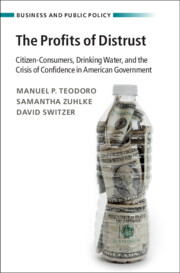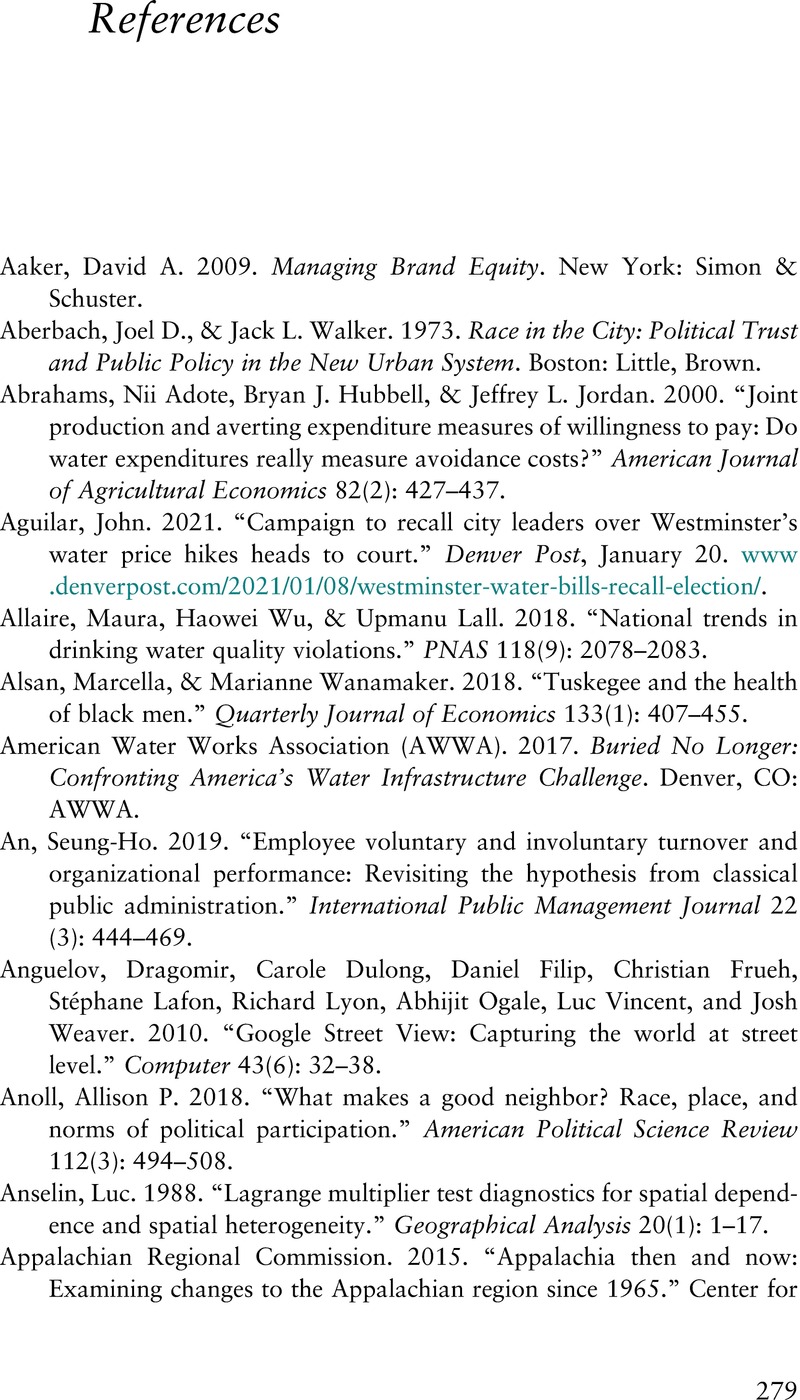 The Profits of Distrust
The Profits of Distrust Book contents
- The Profits of Distrust
- Business and Public Policy
- The Profits of Distrust
- Copyright page
- Dedication
- Epigraph
- Contents
- Figures
- Tables
- Preface
- Acknowledgments
- 1 Basic Services and Trust in Government
- 2 The Profits of Distrust
- 3 (Dis)trust at the Tap
- 4 Hyperopia and Performative Trust
- 5 Speaking Up or Opting Out
- 6 Geographies of Alienation
- 7 When Trust Pays
- 8 Basic Services and Rebuilding Legitimacy
- The Plan
- Book part
- References
- Index
- Other books in the series
- References
References
Published online by Cambridge University Press: 18 August 2022
- The Profits of Distrust
- Business and Public Policy
- The Profits of Distrust
- Copyright page
- Dedication
- Epigraph
- Contents
- Figures
- Tables
- Preface
- Acknowledgments
- 1 Basic Services and Trust in Government
- 2 The Profits of Distrust
- 3 (Dis)trust at the Tap
- 4 Hyperopia and Performative Trust
- 5 Speaking Up or Opting Out
- 6 Geographies of Alienation
- 7 When Trust Pays
- 8 Basic Services and Rebuilding Legitimacy
- The Plan
- Book part
- References
- Index
- Other books in the series
- References
Summary

Information
- Type
- Chapter
- Information
- The Profits of DistrustCitizen-Consumers, Drinking Water, and the Crisis of Confidence in American Government, pp. 279 - 301Publisher: Cambridge University PressPrint publication year: 2022